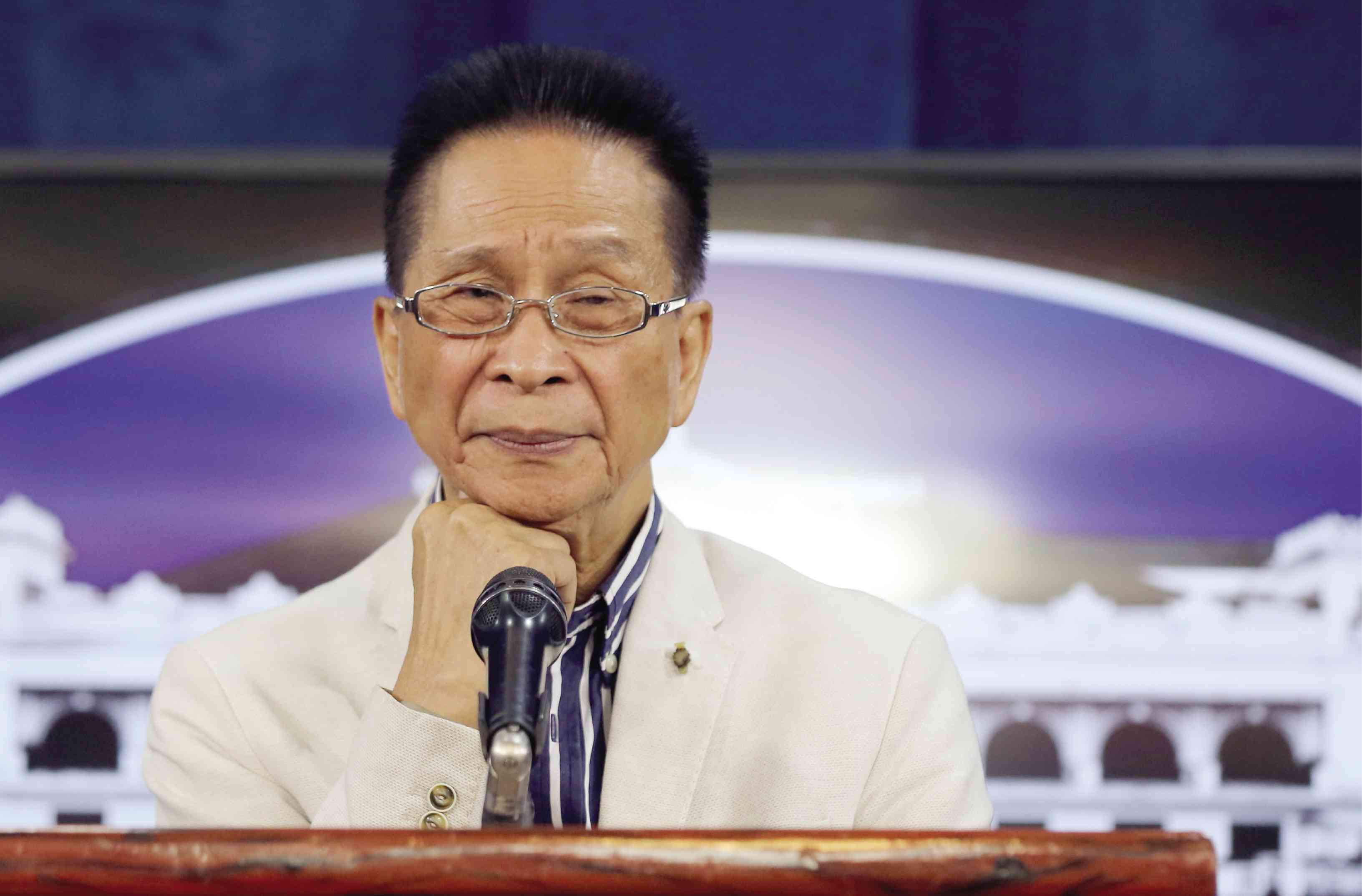
Salvador Panelo —JOAN BONDOC
MANILA, Philippines — Malacañang on Saturday hit out at a group of UN human rights experts for its “unpardonable intrusions” in calling for an international investigation of alleged extrajudicial killings in President Rodrigo Duterte’s bloody war on drugs.
Presidential spokesperson Salvador Panelo dismissed as “intellectually challenged” and “an outrageous interference [in] Philippine sovereignty” the call of 11 special rapporteurs on Friday for the United Nations Human Rights Council (UNHRC) to launch the independent inquiry.
“The 11 UN special rapporteurs’ act of peddling a biased and absolutely false recital of facts, adulterated with malicious imputations against the constituted authorities smacks of unpardonable intrusions on our sovereignty,” Panelo said in a statement.
The Philippines, he said, has a “working vibrant democracy,” and the Duterte administration’s war on drugs was enforced with strict protocols that “any deviation from it is met with the unyielding strong arm of the law, with no transgressors immune from it.”
UNHRC session
The UN human rights experts’ call for an inquiry came ahead of the three-week session of the UNHRC’s 47 member states that begins on June 24.
The experts said they “have recorded a staggering number of unlawful deaths and police killings in the context of the so-called war on drugs, as well as killings of human rights defenders.”
But Panelo said the experts, including Agnes Callamard, the UN chief investigator of extrajudicial executions, presented “general allegations culled from false information emanating from the purveyors of status quo ante the Duterte presidency.”
The Duterte administration has insisted that the more than 5,000 drug suspects killed by police in antinarcotics operations all put up a fight.
Panelo described the UN special rapporteurs as “foreign propagandists masquerading as human rights protectors,” and said their comments were “an outrageous interference [in] Philippine sovereignty.”
The people who have spoken against the President’s antinarcotics campaign and human rights record had been “overwhelmingly rejected” by Filipinos, he said.
Panelo was referring to the political opposition, which did not win a single Senate seat in May’s midterm elections.
“These special rapporteurs should by this time realize that they, who believed in the untruthful advocacies of the electorally vanquished pretenders, have likewise been demolished, beyond redemption,” he said.
The UN special rapporteurs also accused the President of publicly intimidating activists and Supreme Court judges, degrading women and inciting violence against alleged drug pushers and others.
Filipino human rights advocates on Saturday welcomed the call of the special rapporteurs, with the group Karapatan describing it as “an apt and urgent response to the human rights crisis being faced by the Filipino people.”
“If the Duterte government has nothing to hide, it should be open and receptive to such forms of investigation, instead of its usual disregard of such mechanisms for redress,” Karapatan said in a statement.
The Commission Human Rights also supported the UN experts’ call for an inquiry.
“We believe that this call by the UN experts is [a] good opportunity for the government to address questions on the human rights situation in the country, instead of dismissing it again as propaganda,” said Jacqueline Ann de Guia, spokesperson for the CHR.
“Let now an independent probe test the government’s commitment to the respect and protection of human rights, as well as international human rights standards, in the interest of the welfare of every Filipino.”
Sustained attacks
On Friday, the UN experts urged the UNHRC to take action against the “sustained attacks on human rights defenders and independent watchdog institutions.”
Renato Reyes, secretary general of the militant group Bayan, said the government was obligated to protect and uphold human rights as a signatory to several treaties, including the International Covenant on Civil and Political Rights.
“[Such an inquiry] should not be dismissed as foreign intervention or destabilization plots,” Reyes said. “Human rights violations are not fictitious.”